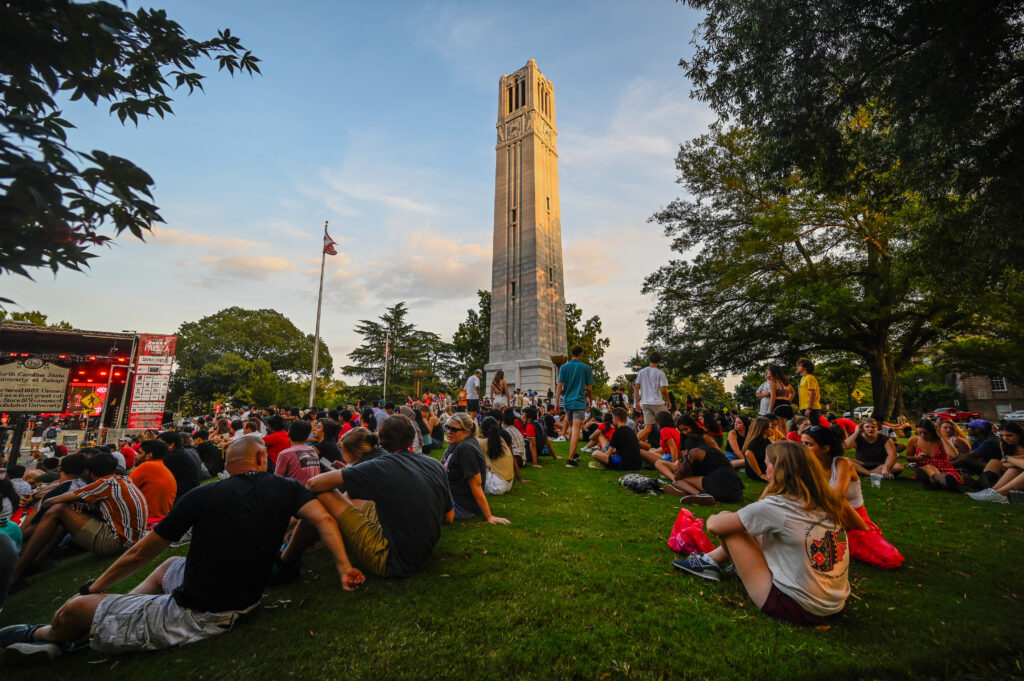Centering First-Generation Student Success
Background
First-generation students are defined as students whose parents or guardians did not complete bachelor’s degrees. In 2020-2021, DASA Assessment and TRIO Collegiate Programs partnered to support a literature review and focus groups about first-generation student success. DASA Assessment worked with the undergraduate Pack Assessment Ambassadors to focus on student success topics most relevant to first-generation students. The Ambassadors’ goal was to provide insights and recommendations to the Division of Academic and Student Affairs (DASA) that could be used to better support first-generation student success.
Literature Review and Focus Groups
In spring and summer 2021, the Pack Assessment Ambassadors performed a literature review about first-generation student success. Ambassadors identified topics that were most relevant to first-generation students: students’ sense of belonging and their utilization of support resources. Ambassadors worked with assessment staff to write focus group questions and practice facilitation. After facilitating virtual focus groups with first-generation in spring 2021, Ambassadors transcribed focus group data and used descriptive coding techniques to find themes. Ambassadors presented a research poster describing their work at the 2021 Undergraduate Research Symposium, which included recommendations for faculty and staff based on their findings.
Student Recommendations
In summer 2021, the Pack Assessment Ambassadors created a visual report containing their findings about first-generation experiences at NC State, their recommendations for supporting these students, and relevant student resources. Next steps and reflection questions are provided for faculty and staff who are interested in taking action to use these findings in support of student success.
Selected highlights from the report are displayed below.
Access to Support Resources
First-generation students can be very self-reliant, but may also be hesitant to ask for help when it is needed.
Some first-generation students may have limited time to take advantage of opportunities on campus and need flexibility.
Positive relationships with faculty and staff can help first-generation students learn about NC State resources.
Sense of Belonging
First-generation students feel a sense of belonging through opportunities to connect with their peers and instructors.
Getting involved in student groups can help first-generation students feel more connected.
Some first-generation students feel a strong sense of belonging through their membership in identity-based groups on campus.
Taking Action to Improve the First-Generation NC State Student Experience
In 2021-2022, DASA convened a team to take next steps to promote the success of first-generation students. Faculty and staff from a variety of units reviewed student recommendations and identified key data points about first-generation students at NC State. DASA hosted a First Generation College Student Summit in November 2022 to bring together units from across campus together to take action to improve the experience of first-generation NC State students. Summit attendees left with the task to bring their ideas back to their colleagues and draft plans to update their practices. In February 2023, the summit participants presented their plans to first-generation NC State students to receive feedback.
Data-Informed Decisions
Units across NC State focused their action plans on improving awareness and use of campus resources, adding opportunities to build community and breaking down barriers to equitable access. Units accomplished this by creating hubs of information to make it easier to navigate the complex university environment and developing social and networking events to build connections.
- To assist in the transition to NC State Prevention Services created virtual care packages for new students and for family members. These care packages highlight resources and common challenges faced by students.
- The Academic Success Center created an NC State Resources webpage to have an easy to reference list that helps students learn university language and the different resources available to them.
Moving Forward
Making impactful changes or shifting practices takes time and dedication. If you want to center the experience of first-generation students in your work, please use the resources listed above in addition to these reflection questions below.
Reflection Questions for Faculty and Staff
In my existing programming and curricula, how can I create more opportunities for connection with my first-generation students and foster connections among their peers?
How can I increase student awareness of NC State resources?
How can I identify and bridge barriers between my first-generation students and the opportunities they may benefit from?
In what ways can I further develop my understanding of the needs of first-generation students and the diverse identities they represent?
